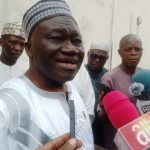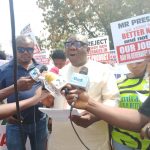Public-Private Partnerships (PPP) in Infrastructure: What Has Worked, What Hasn’t, and What Must Change
By Dr. Aiyeku Olufemi Samuel
Development Economist | Policy Consultant |
Co-Founder & Lead Consultant
Global Human Capital & Energy Management Limited
Infrastructure remains the bedrock of economic growth and social progress. Roads, power, rail, housing, telecoms, and water systems are not just development enablers—they are development itself. In Nigeria and other developing economies with resource constraints, Public-Private Partnerships (PPP) have emerged as a viable model to bridge the infrastructure gap. But decades after the adoption of this model, are we truly getting it right? What lessons have been learned, and what still needs urgent reform?
What Has Worked: A Glimpse of Success Stories
Despite challenges, a few PPP projects in Nigeria have demonstrated the promise of this model when well executed:
Lekki-Epe Expressway (Lagos State) – A Build-Operate-Transfer (BOT) toll road project with visible quality improvements in road infrastructure, though controversial in execution.
Azura-Edo Power Plant – Nigeria’s first project-financed independent power plant (IPP), developed with clear contractual frameworks and risk guarantees, now contributing over 450MW to the grid.
Garki Hospital Abuja – One of the earliest successful health PPP models, combining private capital with public infrastructure to deliver quality tertiary care.
National Identity Management Commission (NIMC) – Gradual digitization of national ID system under PPPs has attracted private digital identity firms and global funding.
These show that when the legal, financial, and risk frameworks are solid, PPPs can attract investments and deliver results.
What Hasn’t Worked: The Gaps and Failures
Despite isolated wins, most PPP projects in Nigeria either stall, fail midstream, or under-deliver. Why?
Several factors stand in the way:
Weak Legal and Regulatory Frameworks – The PPP legal environment remains fragmented. Only a few states have solid PPP laws. Regulatory agencies often lack independence or clarity in mandates.
Inconsistent Government Policies – Abrupt changes in administration or policy often lead to contract reversals, delays, or litigation, scaring away investors.
Inadequate Risk Sharing Mechanisms – Many projects offload excessive risk on private parties without proper guarantees, leading to poor bankability.
Corruption and Opaque Procurement – Politicization and under-the-table dealings undermine transparency, investor trust, and project quality.
Public Opposition and Social Resistance – Poor stakeholder engagement, especially in toll projects or utility reforms, generates hostility from citizens and civil society.
If infrastructure drives growth and PPP drives infrastructure, why are most PPPs failing to drive national development?
Answer: Because the drivers—policies, institutions, transparency, and accountability—are either absent or poorly coordinated.
What Must Change: Recommendations for Sustainable PPP Frameworks
To optimize PPPs and ensure they become a true vehicle for national development, the following reforms are critical:
Strengthen the Legal Framework Nationwide
Establish a unified, enforceable PPP Law at the federal level, and support sub-national governments to replicate it.
Empower the Infrastructure Concession Regulatory Commission (ICRC) with more independence and oversight powers.
Institutionalize Transparency and Competitive Bidding
Introduce tech-based procurement platforms to remove opacity.
Make project selection, evaluation, and contract award publicly accessible and audit-able.
Ensure Political Will and Policy Continuity
PPPs require long timelines. Governments must guarantee non-partisanship and continuity irrespective of electoral outcomes.
Improve Risk Management and Viability Gap Funding
Develop tools like sovereign guarantees, credit enhancement, and blended finance (e.g., from multilateral banks) to share and de-risk projects.
Strengthen Public Awareness and Social License
Citizens must understand and accept the value of PPPs. Involve communities early, communicate clearly, and link project outcomes to public good.
Establish a National Infrastructure PPP Pipeline
Just like Kenya and South Africa, Nigeria should publish a rolling list of planned PPP projects with expected timelines, scope, and investor interest to increase visibility and alignment.
“Infrastructure is not a cost; it is an investment. And partnerships must be built on trust, not desperation.”
~ Dr. Aiyeku Olufemi Samuel
“No country has achieved sustained economic growth without first closing its infrastructure gap.”
~ World Bank (2022)
The Bigger Picture
Nigeria needs an estimated $100 billion annually over the next 30 years to close its infrastructure deficit (African Development Bank). But government budgets alone cannot foot this bill. This is where well-structured PPPs become non-negotiable—not as an experiment, but as a national imperative.
Conclusion
PPPs are not a magic wand. But when properly structured, they offer a powerful pathway to fast-track Nigeria’s infrastructure, stimulate private investment, and improve public service delivery.
To make PPPs work, we must fix the fundamentals: trust, law, continuity, and transparency. The success or failure of our infrastructure future may well depend on it.
Dr. Aiyeku Olufemi Samuel
Co-Founder & Lead Consultant, Global Human Capital & Energy Management Limited
Governance Analyst|
Development Economist|
Policy Consultant| Strategic Development Advocate| Climate Action Enthusiast | Sustainability & Impact Investing Specialist|Girl-child Advocacy| PPP & CRM Specialist /Sales Innovation & Transformational Results-Driven Business Analyst












